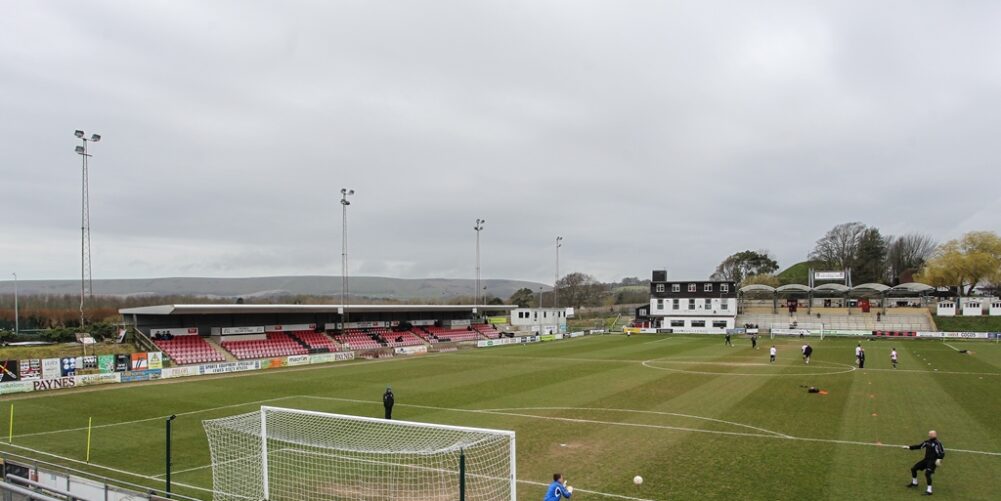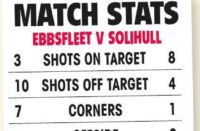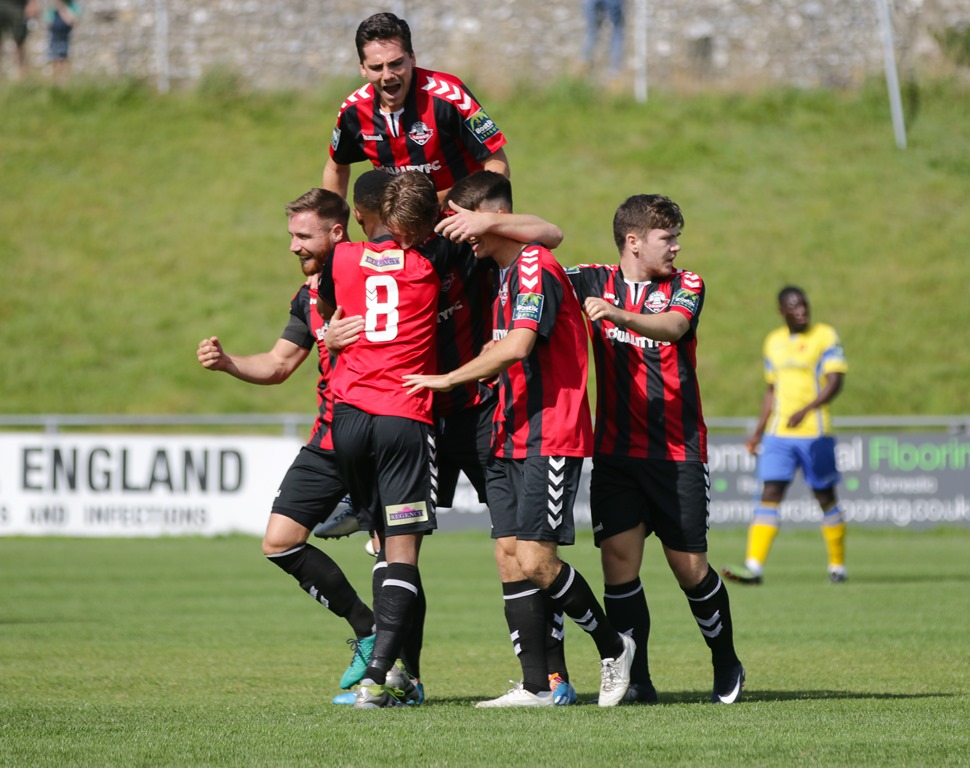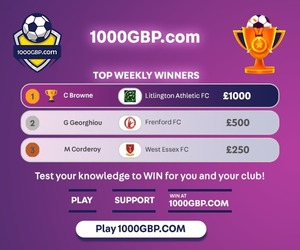By Matt Badcock
FOR a town famous for former resident and revolutionary Thomas Paine, it figures Lewes‘ Football Club think a little differently.
Paine, a radical thinker and one of the founding fathers of the United States, has a statue outside the local library. The Rooks are proving a big attraction in Sussex too.
Since a group of fans took over an ailing club in 2010, there’s been a new outlook. Under the ‘Our Club is Your Club’ banner, fans can become an owner of their team for a £30 annual fee, the executive boxes are beach huts, there’s pay parity between the men and women teams, the accounts are published on their website, and of course those iconic match posters seen around the world.
“When we first started in 2010, and this might sound ridiculous, we really had no plan,” chairman Stuart Fuller says. “We knew we had a football club we needed to turn around. We needed to get revenue through the door, we needed to engage with people who had lost the love of the team.
“We did that, slowly, and we still are doing that. We always look at, ‘Ok, where can we be different?’ Because we have to think on that Saturday afternoon at 3pm someone who lives in Brighton who wants to see Non-League football can go to Worthing, Burgess Hill, Eastbourne, Hastings – that’s before mentioning the likes of Whitehawk, Pagham. We compete with all the teams in the area. There’s a new Art House Cinema opened down the road.
“So we don’t only have to make the product on the pitch enjoyable to watch and value for money, but we have to make sure off the pitch is something that makes them want to come back.
“So we invested a lot in our catering, things like the beach huts. People thought they were crazy. We launched them on April Fools Day a few years ago and they paid for themselves within three months. Now on a match day they are sold out. It’s a nice way to watch, they’re warm, you get a great views – it just gives that little different element.”
A community outlook is crucial too. In 2015 they opened their 3G facility, used as the home pitch for four of the club’s eight teams, and where last Thursday first team players helped out coaching a local junior side.
“One of the things we promise all of our players is that every Friday they will get paid,” Fuller says, on the squad feeling part of something bigger. “They’re paid through payroll so it’s all done like any other employer would. We try and look after our players. If someone has got an injury, we’ll pull in favours and see what we can do to get them the proper treatment.
“They also buy into what the club is trying to do in terms of community and share ownership. They put themselves out for the club.”
Under boss Darren Freeman they have climbed to the top of the Bostik South and there’s genuine hope the club can begin their rise back up the Non-League ladder after sliding down from Step 1 over the last nine seasons.
Supporters feel part of something bigger, too, and it’s tempting to wonder if that’s down to the ‘one share one vote’ ownership scheme.
“A little bit, Fuller says. “There’s probably 50 per cent of people who come and watch us regularly who are owners. There’s another 50 per cent who aren’t owners for a number of reasons. They might feel that as they don’t live locally they don’t get the value out of some of the scheme or they feel they put money into the club in other ways.
“And that’s fantastic. We never ever try and say, ‘You’re not an owner so therefore you don’t have an opinion’. We appreciate anyone who comes through the door and anyone who spends a single penny with us is entitled to their opinion and their voice.
“As directors we all stand on the terraces. We don’t sit in the seats, so anyone can come and talk to us. That’s our philosophy. We’re fans first and then we’re stewards of the club. To us it’s all about making the club sustainable in the long term.”
Fuller has travelled the country and the world – often making the most of work trips to catch a game – watching football, writing books and penning tales for his award-winning blog The Ball is Round. It’s given him insight into other clubs’ ideas.
He tells how Auckland City give out a free four-page piece of paper with the teams and a QR code that can be scanned to bring up a 48-page colour programme on your phone and wonders if Non-League clubs with small crowds will go down that route.
Closer to home he relays a conversation with Stocksbridge Park Steels‘ chairman Allen Bethel about the obstacles clubs are trying to overcome.
“It’s tough,” Fuller says. “A couple of weeks ago I was up at Stocksbridge. It’s a fantastic club, so welcoming, and I had a chat with their chairman. He said, the issue is you’ve got two Sheffield clubs 20 minutes that way, Leeds half-an-hour that way and Manchester half-an-hour that way. The problem is the parents aren’t bringing the kids.
“So the kids aren’t experiencing Non-League football and when they grow up they’ll go and watch Sheffield United or they’ll just go to the pub and watch Sky Sports News. We realised not enough is being done to get kids through the door. Ours is you get in free if you’re U16. That’s great, but you still need an adult to be motivated to bring the kids.
“So we’re looking at ways we can turn that on its head – perhaps give free entry to the parents if the kids pay – that kind of thing.”
It all comes back to asking the same question: How can they do something differently? Take the equal pay for their men and women players.
“The pay parity and Equality FC is all around challenging the norms,” he says. “It’s something we debated significantly as a board. None of us disagreed that it was the right thing to do, it was just how we could do it. Eventually we found a way we think we can do it and I genuinely hope others follow suit.
“But it’s not about saying, ‘Look at us, look how great we are’. It’s asking the simple question of why we couldn’t do this and we couldn’t find a logical reason why not.
“Even now, six or seven years down the line, there’s a few of us who have got a lot of knowledge about how football works and we still ask the same question. ‘Why should we do something that way? Why do I need to speak to that agent? Why do I?’ It’s about challenging that norm.”
Fuller accepts their ideas aren’t for all clubs but says their decisions are right for them. Like their dress policy. There’s no need for collar and tie in Lewes’ boardroom.
“We get some strange looks from other clubs,” he says. “We’re told by certain people you have to wear a shirt and tie at their club. We say, ‘Ok, that’s great and we respect that, but just to let you know we won’t have anyone in the boardroom’. It’s just the way we want to be.”
























